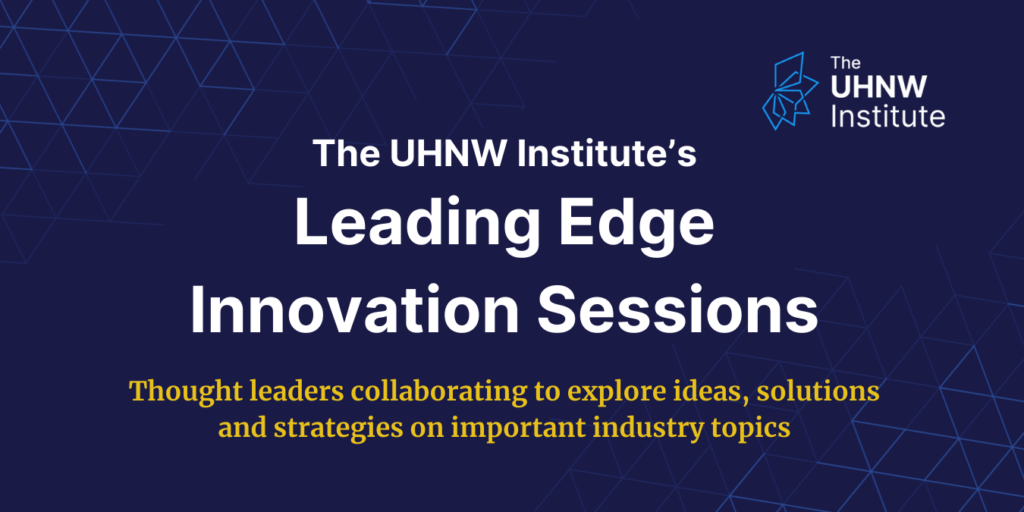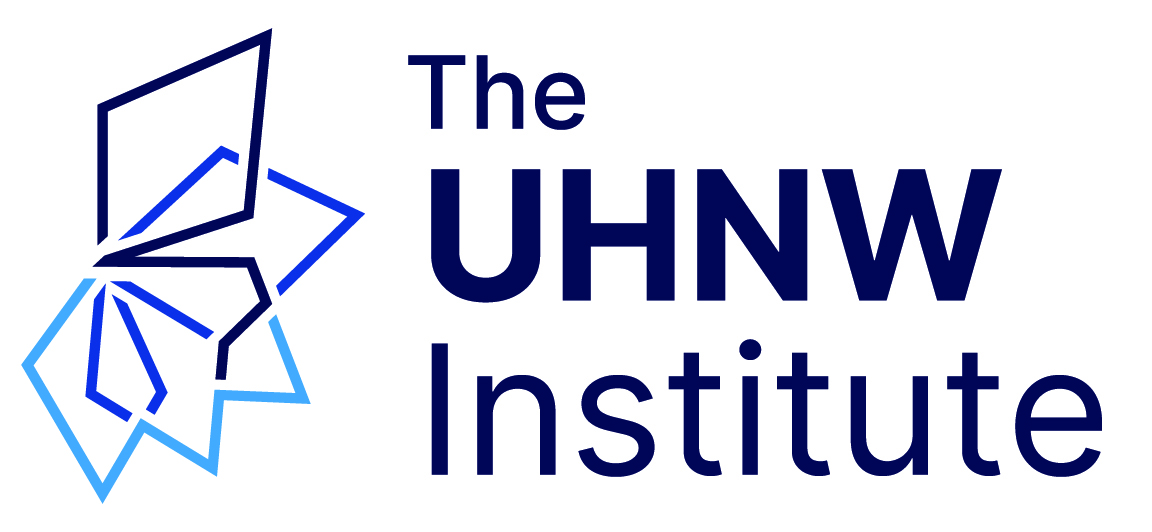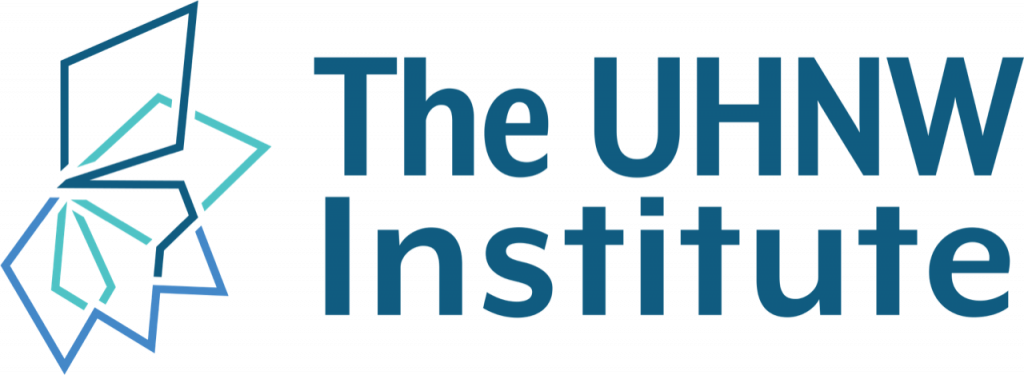
The UHNW Institute’s Leading Edge Innovation Sessions are Institute leadership sessions where thought leaders with diverse perspectives collaborate to explore ideas, solutions and strategies on important industry topics. The resulting concepts and initiatives have the potential to influence decision-making, drive innovation and create positive change for families, advisors and firms.
The 2023 Winter Session – Cooking up Collaboration: What Is the Recipe for Great Collaboration, a Key Ingredient for Integration?
The four-hour hybrid meeting, held in Boston on December 6, 2023, at the PKFOD offices and on Zoom, was facilitated by Jim Grubman and gathered thought leaders and executives from the Board of Directors, Advisory Board and Faculty, including most of the Domain Chairs. The purpose of the meeting was to focus on defining important behaviors, processes and factors essential for collaboration among wealth advisory professionals on behalf of clients or in organizational teams.
The group began with a general discussion of the issues and ideas surrounding collaboration and integration in family wealth advising. The structure of the family wealth advisory team may necessitate more advanced collaboration skills than in many other industries. There was consensus amongst the group that strong collaboration supports optimal integration.
A theme that emerged was that at least three levels or factors may contribute to collaboration in wealth management:
- Collaborative behaviors and internal characteristics at the Individual team member level;
- Organizational and team dynamics factors of the Firm/Advisor System; and,
- Factors of the Client/Family System.
These factors may interact to influence the quality of collaboration for a given team.
1) Self-management skills are needed at the Individual level. Emotional intelligence, humility, respect and vulnerability are important and necessary traits for collaboration. Collaboration is a skill that can be taught. There are practical ways to improve individual collaboration skills. These include the following:
o Avoiding jargon.
o Keeping the focus on the client(s) and fostering collaboration rather than taking control or rushing through issues in the name of being “efficient.”
o Focusing on what you can learn from others.
o Focusing on shared goals. The Ten Domains of Family Wealth can act as a helpful guide to identify shared goals.
o Exploring personal biases — both implicit and explicit.
o Being honest about the stresses of the job.
o Increasing one’s ability to listen, not just talk.
o Practicing empathy.
o Becoming more comfortable with giving and receiving feedback.
o Practicing speaking with clarity and avoiding abstractions.
o Asking open-ended questions designed to reveal others’ goals.
2) The group then discussed organizational barriers or supports that influence collaboration at the Firm/Advisor System level. Collaboration looks different in different settings with different clients and teams. Collaboration does not mean no one is in charge; there may be a leader to keep things on track. Leaders play a vital role in the firm’s collaboration culture. Firm leaders must fully embrace and model effective collaboration. Good communication among team members is important, though business model structure or professional duties of confidentiality can prohibit or limit collaboration in some ways.
There are several practical ways to improve organizational collaboration skills, including the following:
o Teaching people to flex into varying roles, as the situation dictates.
o Training people to have win-win interactions.
o Having clearly defined common goals.
o Careful talent management to develop a collaborative team.
o Looking at research on improving collaboration and EQ.
o Seeking out educational training programs.
o Role-playing with a focus on collaboration skills and giving and receiving feedback.
3) An important takeaway from this Think Tank was the understanding of the role of the Client and Family System in effective collaboration. Clients are at the center of every team, and they can enhance or undermine collaboration. Great clients attract great advisors. Good generative clients attract good generative teams in a positive cycle, leading to better outcomes.
In general, UHNW clients are complex. As clients evolve, advisors and teams must align goals appropriately to meet the increased demand to address additional domains. It was noted that advisors often meet clients during emotional family events such as death, divorce, births, marriages, liquidity events or when a family business has just been bought out. Therefore, they must deal with the strong emotions and pressures being experienced by clients and their families. Collaboration is vital for any UHNW multigenerational family who wants to maintain wealth for generations.
Action Steps and Recommendations
- Before concluding the meeting, participants established plans and actionable takeaways for thenext steps and future think tanks. These include the following:
- Establishing clear definitions, a common language and a framework for what constitutes “collaboration.”
- Continuing to identify behaviors and variables at both the team and individual levels.
- Assessing our own collaborationduring Institute meetings.
- Supporting collaboration through UHNW Institute content and programming.
- Considering collaboration within specific settings, such as within single family offices.
- Looking at collaboration from the perspective of each of the Ten Domains.
- Exploring mentorship or coaching programs to increase levels of self-awareness.
- Creating a collaboration toolkit.
- Refining and developing a compass tool for a collaboration diagram. During the meeting, Natalie McVeigh, domain chair of the Family-Advisory Relationship domain, proposed a model of collaboration as a compass. This will be further discussed and potentially refined.
- Making a business case for collaboration. Demonstrating the real-world benefits of collaboration will help firms understand why collaboration should be part of business goals through resource development.
- Reflect upon your accomplishments and chart your path asyou incorporate collaboration as a key ingredient in the Integrated Family Wealth Management (IFWM) process.
Members can access the full summary here, within the Resource Library.

